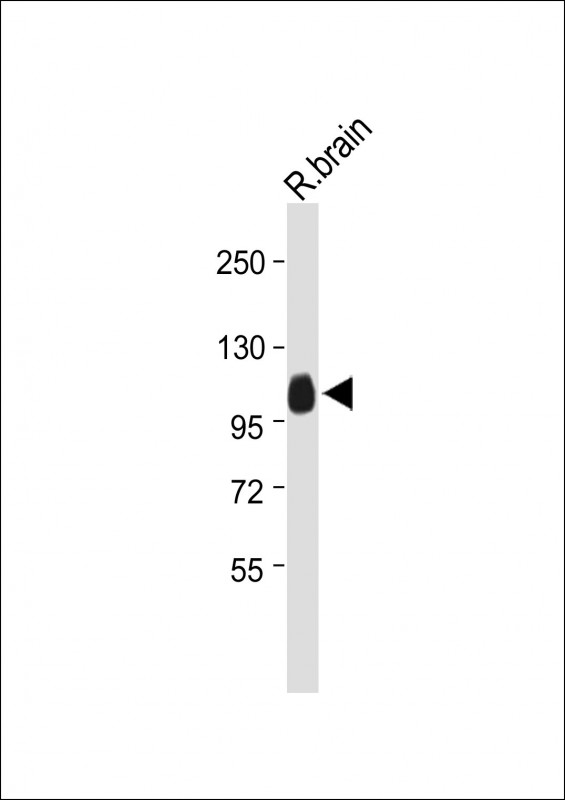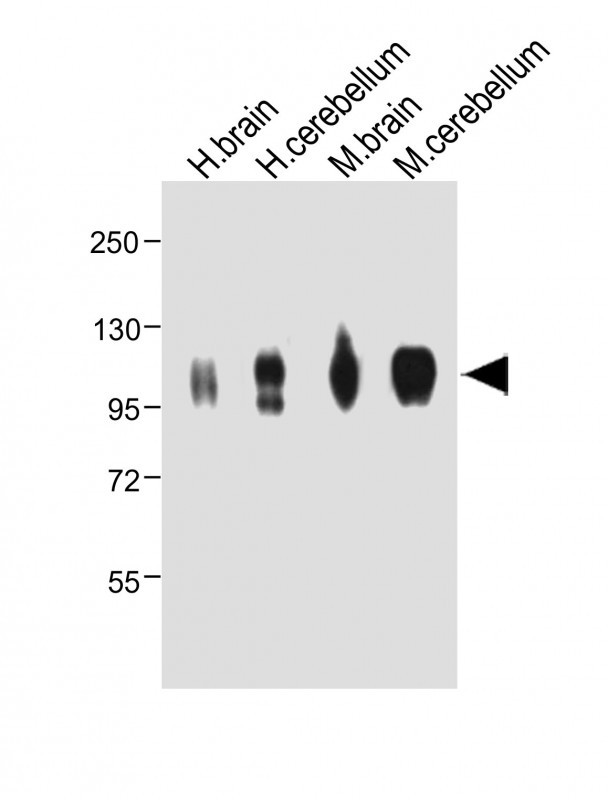产品名称
MAG Rabbit Polyclonal Antibody (Center)
别名
Myelin-associated glycoprotein, Siglec-4a, MAG, GMA
存储缓冲液
Purified polyclonal antibody supplied in PBS with 0.05% (V/V) Proclin 300. This antibody is purified through a protein A column, followed by peptide affinity purification.
Human Gene ID
NP_001186145.1;NP_002352.1;NP_542167.1
Human Swissprot No.
P20916
特异性
This MAG antibody is generated from rabbits immunized with a KLH conjugated synthetic peptide between 439-466 amino acids from the Central region of human MAG.
运输及保存条件
Maintain refrigerated at 2-8°C for up to 2 weeks. For long term storage store at -20°C in small aliquots to prevent freeze-thaw cycles.
背景介绍
MAG is a type I membrane protein and member of the immunoglobulin uperfamily. It is thought to be involved in the process of myelination. It is a lectin that binds to sialylated glycoconjugates and mediates certain myelin-neuron cell-cell interactions.
组织表达
Both isoform 1 and isoform 2 are detected in myelinated structures in the central and peripheral nervous system, in periaxonal myelin and at Schmidt-Lanterman incisures (PubMed:9495552, PubMed:6200494). Detected in optic nerve, in oligodendroglia and in periaxonal myelin sheaths (PubMed:6200494). Detected in compact myelin (at protein level) (PubMed:6200494). Both isoform 1 and isoform 2 are detected in the central and peripheral nervous system (PubMed:9495552)
细胞定位
Cell membrane; Single-pass type I membrane protein Membrane raft {ECO:0000250|UniProtKB:P07722}
功能
Adhesion molecule that mediates interactions between myelinating cells and neurons by binding to neuronal sialic acid- containing gangliosides and to the glycoproteins RTN4R and RTN4RL2 (By similarity). Not required for initial myelination, but seems to play a role in the maintenance of normal axon myelination. Protects motoneurons against apoptosis, also after injury; protection against apoptosis is probably mediated via interaction with neuronal RTN4R and RTN4RL2. Required to prevent degeneration of myelinated axons in adults; this probably depends on binding to gangliosides on the axon cell membrane (By similarity). Negative regulator of neurite outgrowth; in dorsal root ganglion neurons the inhibition is mediated primarily via binding to neuronal RTN4R or RTN4RL2 and to a lesser degree via binding to neuronal gangliosides. In cerebellar granule cells the inhibition is mediated primarily via binding to neuronal gangliosides. In sensory neurons, inhibition of neurite extension depends only partially on RTN4R, RTN4RL2 and gangliosides. Inhibits axon longitudinal growth (By similarity). Inhibits axon outgrowth by binding to RTN4R (By similarity). Preferentially binds to alpha-2,3-linked sialic acid. Binds ganglioside Gt1b (By similarity).


